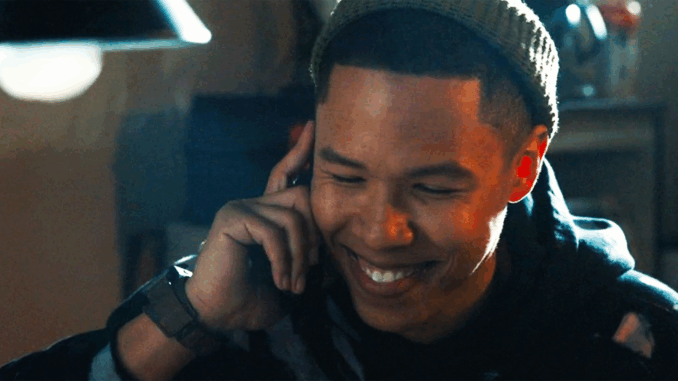
Breaking Stereotypes One Scene at a Time
In a landscape where many television characters blur into generic archetypes, Bobby—played with charisma and authenticity by Eric Graise—stands out as a revelation. He’s tech-savvy, loyal, often funny, and deeply human. But Bobby’s real power lies in what he represents: a character with a disability portrayed not as a gimmick, but as a fully developed person whose contributions are crucial to the show’s success. In Tracker, Bobby is a testament to how inclusivity enriches storytelling, and Eric Graise is at the center of that movement.
Bobby: More Than the Guy in the Chair
Colter Shaw might be the one chasing leads and dodging bullets, but he’d be nowhere without Bobby’s insight and digital wizardry. As part of Colter’s support team, Bobby handles the technical side of tracking—from hacking into systems to researching suspects. But he’s not confined to a desk. He’s a strategist, a confidante, and occasionally the voice of reason when Colter’s emotions run high.
What’s most refreshing is how Tracker treats Bobby’s disability. It’s acknowledged, never ignored, but it doesn’t define him. He’s not “the disabled guy who’s good at computers”—he’s just Bobby, a brilliant and multilayered individual whose disability is part of his story, not the whole story.
Eric Graise: A Trailblazer With Talent to Match

Eric Graise brings lived experience and incredible range to the role. A double amputee and advocate for authentic disability representation in media, Graise is best known for his work in Step Up: High Water and Locke & Key. His presence in Tracker marks a significant milestone for network television—proof that casting disabled actors in prominent roles is not only possible but powerful.
Graise’s performance is rich in nuance. He delivers his lines with a blend of dry wit and emotional clarity, making Bobby a compelling figure even in quieter scenes. Whether he’s cracking jokes or offering heartfelt advice, he’s always believable—never reduced to a caricature or a lesson.
Why Bobby Matters to the Story—and the Industry
Bobby represents something often missing from network dramas: true diversity without tokenism. His disability isn’t exaggerated or used for dramatic plot twists. Instead, it’s woven seamlessly into his character’s everyday life. He moves through the world with confidence, purpose, and the occasional sarcastic remark that keeps Colter grounded.
This kind of representation matters—not just for viewers who rarely see themselves on screen, but for all audiences. Bobby challenges outdated notions of what strength looks like. In his calm, intelligent, and quietly defiant way, he becomes a different kind of hero—one that doesn’t need to fight to be formidable.
Fan Reception and Cultural Impact
Since Tracker’s debut, Bobby has become a fan favorite. Social media is filled with clips, quotes, and fan art celebrating his presence. Viewers of all backgrounds have praised the show’s thoughtful approach to disability, with many pointing out that Bobby’s character would have been unthinkable on a CBS show just ten years ago.
More importantly, Graise has used his platform to elevate conversations about accessibility in the entertainment industry. In interviews, he’s spoken candidly about the need for behind-the-scenes inclusion, not just on-screen visibility. His role in Tracker is proof of what happens when you give talented actors the space to be authentic.
A Role Poised for More
As Tracker continues to evolve, there’s a growing demand for more Bobby-centric episodes. Fans want to know more about his past, his relationships, and his worldview. The writers have hinted at exploring these threads in future seasons—and given the impact Bobby has already had, it’s a logical next step.
With Graise’s depth and skill, the potential for meaningful character development is limitless. Whether mentoring younger tech minds or stepping further into the field, Bobby has room to grow—and Graise has the talent to take him there.
Conclusion: The New Face of Courage on Network TV
Eric Graise’s Bobby is not an accessory to the main story—he’s integral to it. He represents a shift in how network TV approaches disability, diversity, and character development. In every scene, he redefines what heroism looks like—not with grand gestures, but with quiet confidence, sharp intelligence, and unshakable loyalty.
In Tracker, Bobby doesn’t just help solve mysteries—he helps tell a better story. And in doing so, he helps the industry write a better future.
